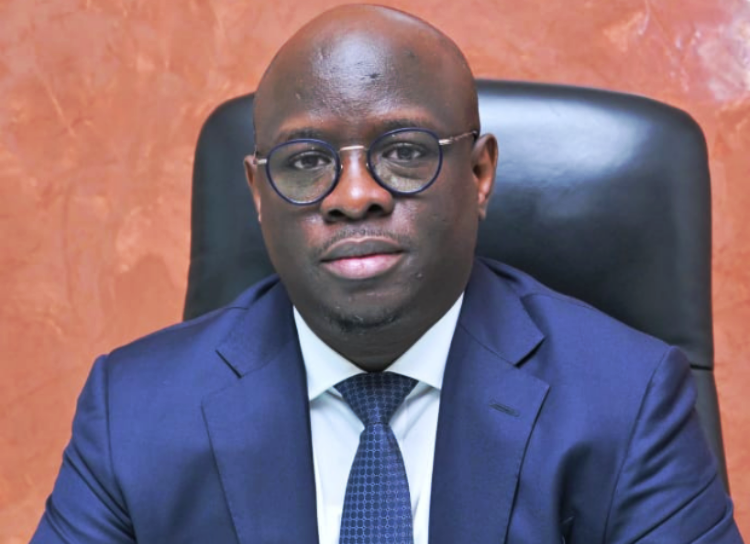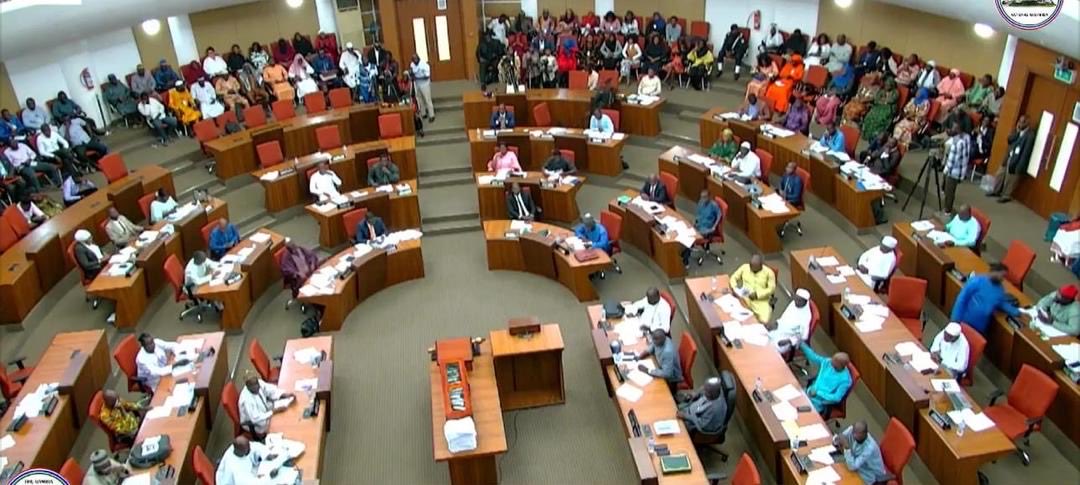Gambiaj.com – (Banjul, The Gambia) – The fate of The Gambia’s Constitution Promulgation Bill 2024 now hangs in the balance as lawmakers weigh the politically charged decision of whether to advance the bill to the critical consideration stage—a phase where amendments, negotiations, and compromises are expected to shape the nation’s long-awaited new constitution.
This morning, the Attorney General and Minister of Justice Dawda Jallow passionately urged National Assembly members to support the bill’s second reading, describing it not as a final endorsement of the draft constitution but as a commitment to dialogue and constructive engagement.
“If you pass this bill at the second reading, it will proceed to the consideration stage, where the real work of negotiation and adjustment takes place,” the Attorney General stated.
He emphasized that lawmakers would have a full opportunity to scrutinize the bill clause by clause, propose amendments, solicit public opinion, and negotiate compromises reflecting The Gambia’s diverse political landscape.
“This is not the end of our deliberative process,” he stressed. “It is the beginning of the most substantive phase where our collective wisdom can shape the final document.”
In a plea clearly aimed at avoiding a repeat of the failed 2020 constitutional reform attempt, the Attorney General warned that rejecting the bill now would “deny ourselves and the Gambian people this opportunity for constructive engagement.”
High-Stakes Vote Amid Shifting Alliances
However, beyond the appeals for unity and statesmanship, the bill faces a harsh political reality: the arithmetic of the National Assembly.
Due to shifting alliances, cross-carpeting, and defections in recent years, the current balance of power has become more fluid and unpredictable.
President Adama Barrow’s ruling National People’s Party (NPP) holds 18 elected seats. Its strength has been further reinforced by a defector from the United Democratic Party (UDP) and two independent members—including one who recently defected from the former ruling Alliance for Patriotic Reorientation and Construction (APRC-Jammeh faction).
Moreover, the NPP can count on the backing of its coalition allies, including two seats from the Fabakary Tombong Jatta-led APRC faction, four seats from the National Reconciliation Party (NRP), and the five nominated members, who traditionally align with the executive.
This potentially gives the pro-government bloc a working majority approaching 31 votes out of 58—a simple majority—but falls short of the supermajority threshold required to advance the bill.
The UDP remains a formidable force with 15 seats, having recently regained an independent to offset an earlier defection.
However, its official stance on the bill remains closely watched, especially given its pivotal role in the last constitutional reform’s collapse.
Parliamentary rules require a 75 percent majority—at least 44 votes—to pass a constitutional bill to the committee stage.
According to the current calculations, even if all other non-UDP members supported the bill, at least two UDP members would need to break ranks and vote in favor for it to cross the threshold.
Crunch Time for Constitutional Reform
This arithmetic highlights why the Attorney General’s appeal focused heavily on the principle of constructive engagement rather than the bill’s detailed contents.
His strategy appears aimed at convincing hesitant lawmakers, especially within the UDP, that approving the second reading merely opens the door to dialogue—not a blanket endorsement of every clause.
“Let us not repeat the mistake of 2020,” he warned. “Let us choose dialogue over division, engagement over abandonment, and progress over perfection.”
The next few days will likely see intense behind-the-scenes lobbying, as both sides seek to sway undecided members ahead of the critical vote.
The stakes are high—not just for the Barrow administration, but for The Gambia’s decades-long search for a modern, democratic constitution.
Whether lawmakers choose engagement or entrenchment will determine whether the reform process moves forward or stalls once again.










